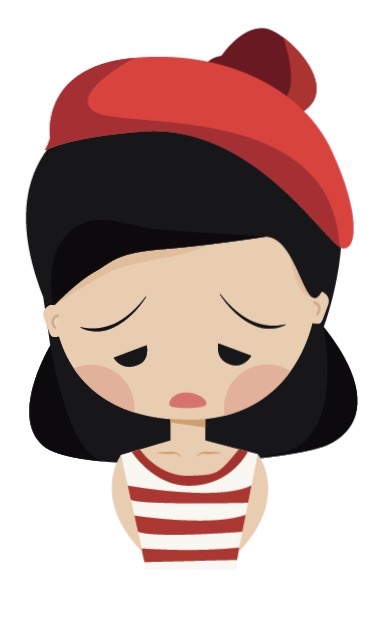
Unpredictability is hard for most of us, but it’s even more difficult for kids and teens. IBD is, by nature, unpredictable and symptoms come on suddenly, leading to missed school, after-school activities and time with friends. Sometimes kids and teens have to undergo painful, uncomfortable or unpleasant medical procedures and take medicines regularly. Many find it hard to talk with friends because it’s embarrassing, after all you can feel unwell and yet still look fine.
It is not uncommon for people living with IBD to feel tired, lousy and experience a host of unpleasant feelings including sadness, frustration and disappointment.
While these emotions are not entirely bad, it’s impossible to be happy all of the time; they are not to be ignored. Talking about how you feel is an important part of taking care of yourself, just like taking prescribed medications. It is completely reasonable to feel sad, frustrated or worried about your IBD at times. Having a flare, preparing for a procedure or having to cancel plans with friends at the last minute is not fun. Even though talking about how you feel can be awkward; it does get easier with practice.
Try talking with a close friend, parent, older sibling, favourite teacher, doctor or nurse, someone you trust. While everyone experiences occasional sadness, the feeling should not last for weeks or get in the way of you enjoying everyday life.
If you find yourself losing interest in things you used to enjoy, not being able to have fun and laugh, feel hopeless or are spending more and more time alone, you may be experiencing signs of depression. Depression is a mental illness that needs to be addressed by a health-care professional.
If you have any concerns about your sadness, it is really important that you tell an adult you trust or someone on your health-care team.
If you ever have thoughts of suicide or hurting yourself then you should immediately call a crisis line, such as the KidsHelpPhone (kidshelpphone.ca or 1-800-668-6868) or 911.
There is good news; kids and teens with IBD are no more likely to develop depression than other children their age. If you are experiencing symptoms of depression, it does not mean that you will be sad forever, are going crazy or need to be in a hospital. Just like IBD, depression can be treated if the right people know about it.
There are medications and behavioural strategies your health-care team can teach you that are proven to make living with depression and IBD easier. The most important thing is to be open about how you are feeling. The people around you are there to help, but can only do so if you let them know how you feel.
To read more articles, visit the latest edition of our magazine, You, Me and IBD.

